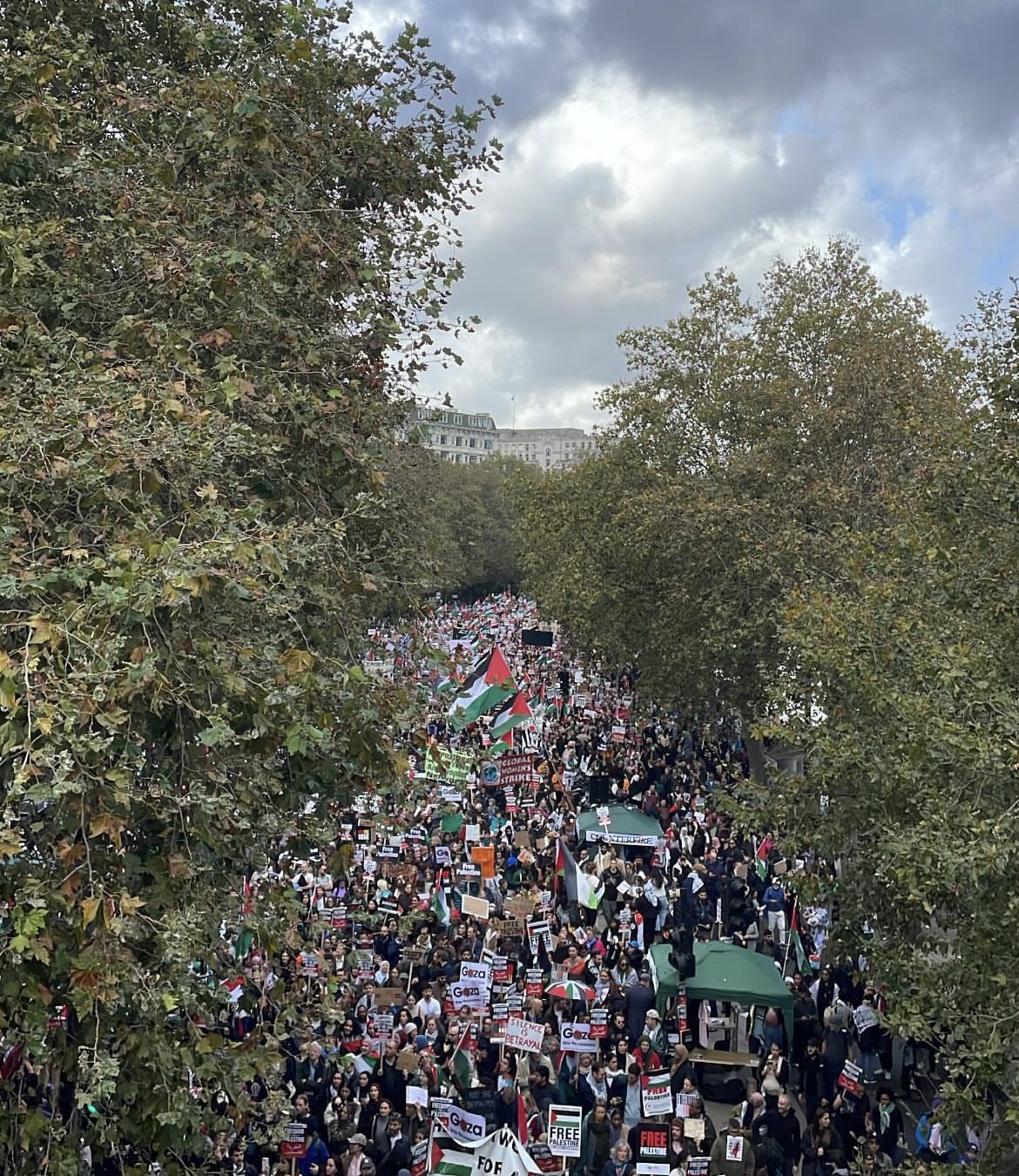“Mob rule is replacing democratic rule” – UK Prime Minister Rishi Sunak.
“Islamists … have got control of London” – Lee Anderson, former Conservative party deputy chairman and, as of March 11, the only MP for the Reform Party.
The Conservative government has changed its official definition of extremism in the wake of such alleged alarm, regular mass demonstrations by tens of thousands against the war in Gaza, and the recent unexpected election of maverick politician George Galloway.
The government’s “update” on defining extremism had before its unveiling itself raised a chorus of alarm and criticism across a wide social and political spectrum – ranging from victims of physical Islamic extremist attacks, through experts and government advisors on extremism, racism and anti-semitism and three former home secretaries, to prominent right-wing Conservatives.
On March 14, Communities Secretary Michael Gove unveiled new wording in the Prevent counter-radicalization program:
“Extremism is the promotion or advancement of an ideology based on violence, hatred or intolerance, that aims to: 1 negate or destroy the fundamental rights and freedoms of others; or 2 undermine, overturn or replace the UK’s system of liberal parliamentary democracy and democratic rights; or 3 intentionally create a permissive environment for others to achieve the results in (1) or (2).”
Ministers and civil servants will be banned from talking to or funding organisations that undermine “the UK’s system of liberal parliamentary democracy” under the new definition. – already criticised by the government’s terror watchdog and Muslim community groups. Communities Secretary Michael Gove said officials should consider whether a group maintains “public confidence in government” before working with it.
The opposition Labour party said hateful extremism is a serious problem that threatens the safety of the UK and it would work with Gove in “good faith”.
Labour Deputy Leader Angela Rayner said:
“From the outset when it comes to national security, the threat of radicalisation and the toxic scourge of islamophobia, Neo-Nazism, antisemitism or any other corrosive hatred – the whole House can, and should, work together.”
She also asked whether Gove was certain the new definition won’t affect gender critical groups, those with conservative religious beliefs, trans activists, environmental groups and those exercising their rights to free speech.
The previous definition – from 9 years ago – defines extremism as “vocal or active opposition to British values”.
As criticism of the government’s plans spread before it announced the new definition, a major joint statement on March 10 warned about the risks of politicising anti-extremism saying: “In the run-up to a general election, it’s particularly important that consensus is maintained and that no political party uses the issue to seek short-term tactical advantage.”
It was signed by former home secretaries Amber Rudd, Sajid Javid and Priti Patel, Brendan Cox (the widower of MP Jo Cox killed during the Brexit campaign in 2016 by a far-right extremist), Neil Basu (former head of counter-terrorism policing), Richard Dannatt (former chief of the armed forces general staff), the government’s adviser on political violence John Woodcock, antisemitism adviser John Mann, and social cohesion adviser Sara Khan.
On the Tory right New Conservatives chair Danny Kruger expressed concerns about “state agents ” implementing “vague notions about what’s acceptable in a modern democracy”, and ally Miriam Cates warned that a rule change could stifle debate surrounding gender and abortion: “This is a slippery slope towards the abolition of fundamental freedoms. What does it even mean to ‘undermine British values’ when there is no consensus – and certainly no legal definition – of what those values are?” Both Kruger and Cates are social Conservatives promoting “family values”.
Prominent Conservative Brexit supporter David Frost called for proper enforcement of already existing laws.
More than 50 victims of Islamist-inspired terror attacks signed a joint letter warning that it is “irresponsible” for politicians to equate extremists with “the vast majority of British Muslims who deplore such violence” and “feeding far-right extremism, dividing communities and exaggerating the risk will feed a cycle of extremism that will put more people at risk”.
Signatories included a Jewish man whose parents were killed by Hamas during the 7 October attacks on Israel, the widow of British soldier Lee Rigby killed with a cleaver in a 2013 Islamic attack outside Woolwich barracks, and the parents of a boy killed in the 2017 Manchester Arena bombing.
Even the pro-hunting and rural life Countryside Alliance chimed in.
“We are concerned that defining extremism as something as woolly as ‘undermining fundamental British values’ will become an excuse to crack down on any opinion which isn’t shared by a majority of the population,” said its chief executive Tim Bonner.
The government’s redefinition of extremism comes during a massive surge in anti Jewish and anti Muslim incidents following the 7 October attack by Hamas and the subsequent Israeli assault on Gaza – and a wave of mass protests calling for a ceasefire and humanitarian aid in Gaza, the first of which the government tried to shut down on Armistice Day November 11.
More than three months later, hours after George Galloway won the Rochdale byelection largely on an anti-Israel platform, Prime Minister Rishi Sunak claimed extremist groups in the UK are “trying to tear us apart”, and claimed democracy itself was a target.
Labour Leader Keir Starmer endorsed Sunak’s comments, saying: “The prime minister is right to advocate unity and to condemn the unacceptable and intimidatory behaviour that we have seen recently.”Groups and individuals deemed to have crossed the line under the new definition would have all ties and funding severed from government and other public bodies.
Government unveils new definition of extremism
Questions about use of new definition
3 ex-Home Secretaries join warning not to politicise extremism
Attack victims decry anti-Muslim hate
Criticism from an assortment of activists
The week ahead defined
Rishi Sunak on mob rule
Lee Anderson claims Islamists control London
Lee Anderson defects to Reform
George Galloway wins Rochdale
Rebranding protest as extremism – openDemocracy
Inside the Armistice Day street protest- a diverse mix of protesters
The Armistice Day march
The latest pro Palestine protest – March 9
Palestinian protests “overwhelmingly peaceful” – Dame Sara Khan former government social cohesion advisor
Protests making London a “no-go zone for Jews” – Robin Simcox current government social cohesion advisor
Israel-Hamas war protests in UK – Wikipedia
Who do we think are the extremists – YouGov polling February 29
Media and the Gaza protests – Institute of Race Relations
Rise in anti Jewish incidents
Rise in anti Muslim incidents
Johnson government forces through Police Bill 28 April 2022
UK slips down to 26 on World Press Freedom Index 2023

London 28 Oct. 2023




